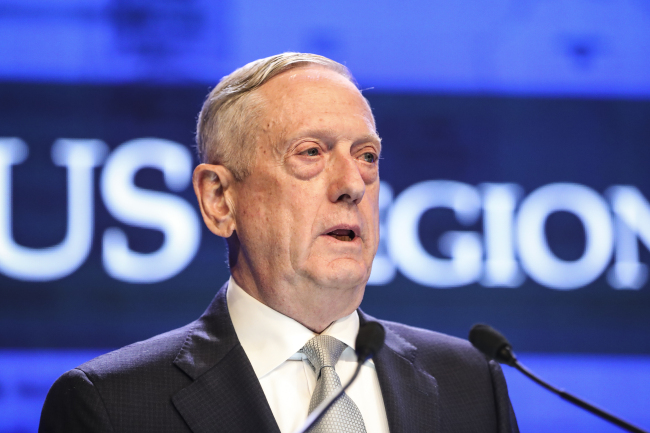Since the end of the Korean War in 1953, the US has stationed large-scale troops in South Korea. Though the level of troops has fluctuated over time, the US forces in South Korea have played a crucial role in deterring provocations from North Korea.
Now, the future of the USFK is being questioned amid speculation that the issue could be raised during the US-North Korea summit on June 12, prompting debate over what role the troops would play in the event of a diplomatic breakthrough between Washington and Pyongyang.
If the issue were to be raised during the upcoming summit between US President Donald Trump and North Korean leader Kim Jong-un, the two leaders would discuss changes to the number and nature of the troops, not whether to withdraw them entirely, Seoul-based analysts said.
“There is no reason to think that the USFK issue will not be brought up at the summit,” said Shin Bum-cheol, a senior fellow at the Asan Institute for Policy Studies. “But it won’t be about US military presence itself. It would be more about how they can be changed in terms of roles and number.”
 |
| US Defense Secretary Jim Matttis. Yonhap |
The debate over USFK’s future role arose after Trump indicated Friday that he had talked about the issue of the USFK during his meeting with Kim Yong-chol, the highest-ranking North Korea official to visit the US in 18 years.
Asked by reporters whether Kim had asked about the troop level in South Korea, Trump said they had “talked about almost everything.” Then the president appeared to change the subject by adding that they also discussed economic sanctions on North Korea.
While US Defense Secretary Jim Matttis made clear that the issue of the USFK will not be on the negotiation table with North Korea, speculation is rampant that Trump might negotiate over the US military presence to reduce the burden of keeping massive troops overseas.
“The ongoing debate over USFK is largely based on Trump’s efforts to gain leverage ahead of upcoming negotiations with South Korea on defense cost-sharing,” said Kim Yeol-su, head of security strategy at the Korea Institute for Military Affairs
Even before coming into office, Trump had demanded South Korea and other US allies pay more for the stationing of US troops. Under the current cost-sharing agreement signed in 2014, South Korea provides $830 million per year for the upkeep of US forces.
Kim may demand adjustment to the number and the nature of the USFK, and Trump might somehow respond to Kim’s request, but it is highly unlikely that they would discuss the very presence of US troops here, experts said.
Instead, Washington may consider at the end of nuclear talks with North Korea whether to change the role originally played by the USFK — from those aimed at defending against North Korea’s military aggression to a balancing role against China, analysts said.
“The issue of the USFK is so controversial. … If it were to be discussed between the US and North Korea, it would most likely happen at the final stage of the negotiations,” said Kim of the Korea Institute for Military Affairs.
Behind the rationale lies Washington’s belief that US military presence in South Korea is crucial to maintaining military supremacy in the East Asia, where the US faces growing assertiveness from China, Kim added.
In a symbolic move, the US Pacific Command, a superior command of the USFK, was renamed Indo-Pacific Command. The decision was largely seen as efforts to check China’s influence by strengthening ties with India.
Some analysts suggested that Beijing’s expanding influence might prompt North Korea to change its traditional position on the USFK and embrace it as a balance against cross-border confrontations with China.
“Without the presence of the USFK, the entire Korean Peninsula would be susceptible to China’s influence. Therefore, I think North Korea could accept the USFK’s presence as long as it doesn’t take aim against it,” said Kim Hyun-wook, a professor at the National Korea Diplomatic Academy.
By Yeo Jun-suk (jasonyeo@heraldcorp.com)

